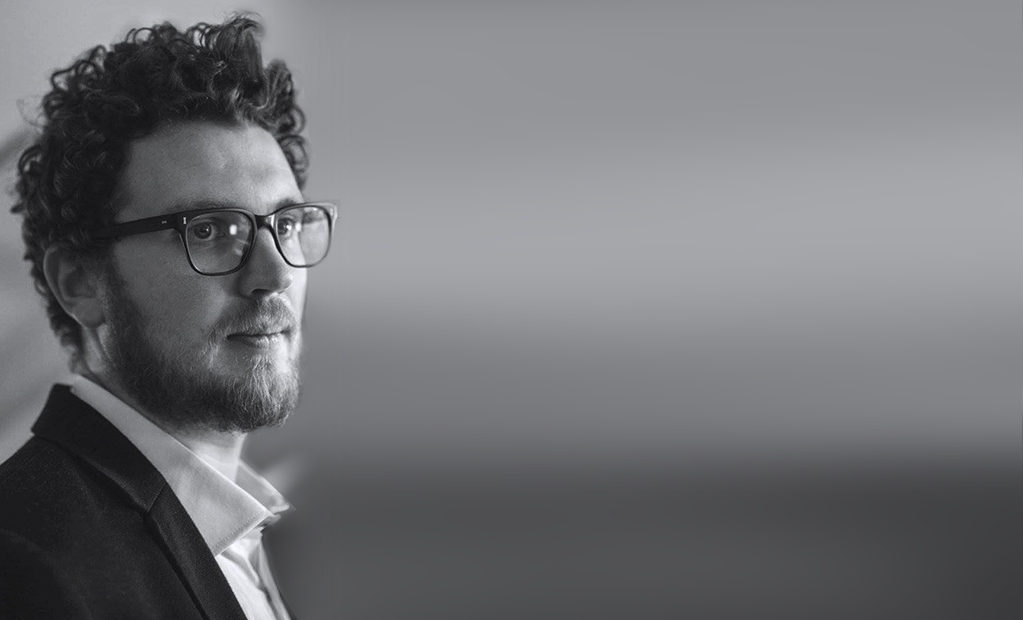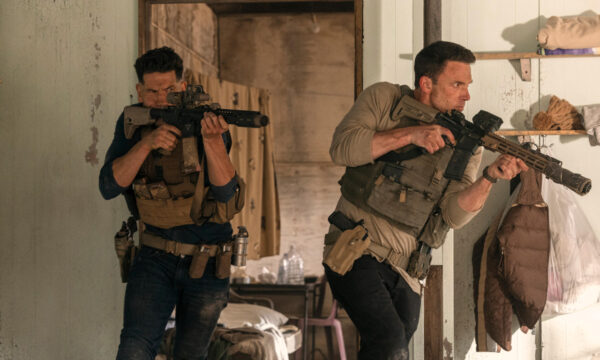“We want to get back to the green land of our past and get away from the concrete”: Gwen writer-director William McGregor and actress Eleanor Worthington-Cox discuss folklore and feminism

British filmmaker and writer William McGregor is known for his use of landscape and dark themes. He has recently released his first feature, Gwen, starring award-winning actress Eleanor Worthington-Cox as the lead. We chatted with both director and actor about their movie, discussing the inspiration and their process while making this project.
Hello, thank you for taking the time to talk with us. Firstly a massive congratulations on your feature film, Gwen.
William McGregor: Not a problem and thank you so much.
What was your initial inspiration for this film?
WG: I have always had a love for the gothic and folk stories. I made a short film called Who’s Afraid of the Water Sprite, which was a horror fairy tale filmed out in Slovenia, and a producer saw that short in a student film festival in 2009 and suggested that this fairy tale that I’d made would work really well as a feature film in the Snowdonia landscape. They then suggested that I went and explored that. And it drifted from the fairy tale into exploring the folk traditions and beliefs of North Wales and also the history there. You start to think, well what happened to the people, the people that lived there, you know? You learn the history and see how brutal that was, how that forgotten part of history was left behind and not presented that much in media. Yeah, it became this amalgamation of the history and folklore of the region.
You have classified this film as a gothic folk horror. This genre is extremely popular lately; why do you think people enjoy these films so much?
WG: I think for me personally, and for other people, it’s about the fact that you’re surrounded by concrete and screens every day, but there’s still an attachment to the landscape. Even in modern times, there’s this question of where we come from and what is our relationship with the landscape. I think that is what is being brought to the screen and people are interested in that type of story because I think it speaks to us, we want to get back to the green land of our past and get away from the concrete. Even if it’s not folk stories, it definitely feels like there’s an interest in that type of storytelling. It’s such an interesting genre as well because you are always discovering new elements of it. It’s so diverse, and you can do so much with it; it can be like a Czech new wave folk horror like Witchhammer, it could be like one of the old BBC play for the days or one of the old Christmas ghost stories, things like that. You are always unearthing little gems.
You have managed to make the landscape beautiful and terrifying. What was it like working together on this project?
Eleanor Worthington-Cox: I honestly couldn’t have wished to do work with anybody as freeing. You know we managed to collaborate. It was like we were working out who this character was as we went along. We were feeling our way through. When you have the freedom as an actor to work with somebody who is telling you you can do what you feel is right and do what you think is going to work that’s massively rewarding and I have never really done that kind of project before. Also, I was 16 at the time so for someone to treat me as an adult and say, “what do you think would work best in this circumstance”, that was amazing for me. I would say William was pretty darn good to work with, definitely not a diva that’s for sure.
Eleanor, you play the main character, Gwen. Her role must be demanding. What is your process as an actor when dealing with such an emotive character?
EW: It’s interesting because whenever I play a different character, I always manage to detach myself from them and understand that even if you put your heart and soul into the making of this person that is not you. At the end of the day, you don’t want to be coming home and feeling as drained as this poor young woman would have felt. By detaching myself, I could go home and feel lucky for a wonderful day of work. While it should have taken a lot out of me, it felt more of a privilege than a demand. Because I got myself into this from the beginning, from the minute I read the script I was like, I have to do this story, or I’m going to be really upset. It was something that I just fell in love with.
That must be flattering to hear as not only the director but the writer of the script as well.
WG: Yes, but you also rely on your cast and crew. You are always keeping your ear open, for if there is a better idea or if someone’s got a perspective that will improve the story. Especially, you know, a 16-year-old girl playing that role. Not only is Eleanor a fantastic actress but she has got a perspective that I don’t, so you want to give people the freedom to collaborate with you.
Speaking about the female viewpoint in your film, you show a family unit with three women and an absent father. What made you decide to write from a women’s perspective?
WG: I think it’s several things. I have always been fascinated in fairy tales; Angela Carter’s The Bloody Chamber, with rewriting fairy tales, has been a massive part of my work. Also, I’m just fascinated by this idea of witches. So in the movie The Witch it’s saying witches are real and you should be afraid of them whereas this film, Gwen, is saying, well actually aren’t these just people with different beliefs that you labelled as witches because you are afraid and you don’t understand? So actually, an independent family unit of women is the community, these guys are after their land but also there is a sense that they are afraid of them and don’t understand. Prosecution of witches is still relevant now; it was almost used as an excuse to try and destabilise independent and influential people.
What did you want to tell with this story, and why is it important to see now?
WG: I think the story about the mother-daughter relationship is universal and realising it’s tough love instead of hate is important, you know? Parents are not punishing you or hurting you; it’s actually part of love and protection, and I feel that is an important universal story that we all connect with. Also, I think you can hold a mirror to today by looking back at our history to the industrial revolution; we can see the way we treated our landscape and how we treat people to capitalise on their land. I still feel this is very very relevant, people being dispossessed from their homes for capitalised gain and by looking at it in a gothic story I think in some ways it’s a different lens to look through than that of a social realist piece.
What makes the horror element so different in this film?
WG: You want to ask is the horror grounded from the earth: is it a natural thing, is it a mundane thing, or is it a supernatural thing? And that is what is always being questioned from Gwen’s point of view; the film is always trying to answer that question.
What was it like acting as Gwen?
EW: I was just so happy to be part of this female-driven story where a lot of the time it seems quite hopeless, but I believe that it is hopeful in the way that I get to play a character who is standing up against this patriarchal society; she is trying to figure out what’s happening around her, she’s raising a young sister, looking after her ill mother and trying to keep her farm from failing and that’s their one source of income while their father is away fighting. To be able to feel that deep-rooted sense of feminism while we were filming was hugely empowering, not just as an actor but as a person, because I could feel that I was supported and was telling a story that needed to be told and is relevant. If I was a young woman watching this film I would feel proud to see it because I would know it’s another young woman who has been given an opportunity to tell her story of strength, coming of age, but also to be vulnerable and to know that life isn’t a fairy tale; you are allowed to be scared and allowed not to understand what is happening around you.
What would you like the audience to feel walking out of the cinema after watching Gwen?
WG: Everyone is going to react differently, I think. Just from touring the film and listening to the Q&A’s, we have people come out, and they might be from North Wales, and they have a very direct relationship to people being removed from their homes, or it might be a young girl who is going through an experience with her mother. Everyone has a different perspective of the film. So for instance, if you are very left-wing, you are going to come out with a huge anti-capitalist perspective on it, or if you are very religious, you might take something else. So with all these avenues, I think I’m quite happy to load the film with all these images and themes and let people have their own freedom with it. I believe the power is in the viewer. I can try and define and craft what this story is about, but ultimately, it is about what the person watching it thinks it is about.
Well, best of luck with Gwen and thank you so much for taking the time to talk with us. We wish you both all the best.
WG: Thank you very much.
Emma-Jane Betts
Gwen is released in select cinemas on 19th July 2019. Read our review here.
Watch the trailer for Gwen here:























Facebook
Twitter
Instagram
YouTube
RSS